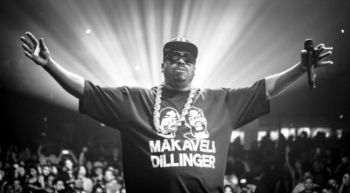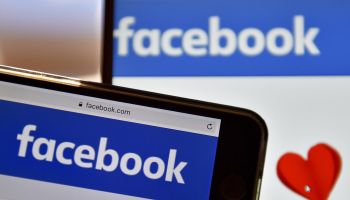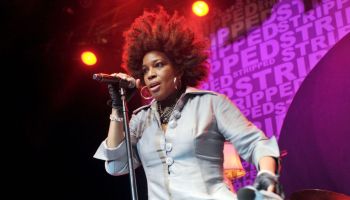http://www.newsnet5.com/dpp/news/national/Ed-Koch-mayor-who-became-a-symbol-of-NYC-dies-at-88
NEW YORK – Former Mayor Ed Koch, the combative, acid-tongued politician who rescued the city from near-financial ruin during a three-term City Hall run in which he embodied New York chutzpah for the rest of the world, died Friday. He was 88.
Koch died at 2 a.m. at NewYork-Presbyterian/Columbia hospital, spokesman George Arzt said. The funeral will be Monday at Temple Emanu-El in Manhattan.
Koch was admitted to the hospital on Monday with shortness of breath, and was moved to intensive care on Thursday for closer monitoring of the fluid in his lungs and legs. He had been released two days earlier after being treated for water in his lungs and legs. He had initially been admitted on Jan. 19.
After leaving City Hall in January 1990, Koch battled assorted health problems and heart disease.
The larger-than-life Koch, who breezed through the streets of New York flashing his signature thumbs-up sign, won a national reputation with his feisty style. “How’m I doing?” was his trademark question to constituents, although the answer mattered little to Koch. The mayor always thought he was doing wonderfully.
Bald and bombastic, paunchy and pretentious, the city’s 105th mayor was quick with a friendly quip and equally fast with a cutting remark for his political enemies.
“You punch me, I punch back,” Koch once memorably observed. “I do not believe it’s good for one’s self-respect to be a punching bag.”
The mayor dismissed his critics as “wackos,” waged verbal war with developer Donald Trump (“piggy”) and mayoral successor Rudolph Giuliani (“nasty man”), lambasted the Rev. Jesse Jackson, and once reduced the head of the City Council to tears.
“I’m not the type to get ulcers,” he wrote in “Mayor,” his autobiography. “I give them.”
When President George W. Bush ran for re-election in 2004, Koch, a Democrat, crossed party lines to support him and spoke at the GOP convention. He also endorsed Mayor Michael Bloomberg’s re-election efforts at a time when Bloomberg was a Republican. Koch described himself as “a liberal with sanity.”
He was also an outspoken supporter of Israel, willing to criticize anyone, including President Barack Obama, over decisions Koch thought could indicate any wavering of support for that nation.
In a WLIW television program “The Jews of New York,” Koch spoke of his attachment to his faith.
“Jews have always thought that having someone elevated with his head above the grass was not good for the Jews. I never felt that way,” he said. “I believe that you have to stand up.”
Under his watch from 1978-89, the city climbed out of near-financial ruin thanks to Koch’s tough fiscal policies and razor-sharp budget cuts, and subway service improved enormously. But homelessness and AIDS soared through the 1980s, and critics charged that City Hall’s responses were too little, too late.
Koch said in a 2009 interview with The New York Times that he had few regrets about his time in office but still felt guilt over a decision he made as mayor to close Sydenham Hospital in Harlem. The move saved $9 million, but Koch said in 2009 that it was wrong “because black doctors couldn’t get into other hospitals” at the time.
“That was uncaring of me,” he said. “They helped elect me, and then in my zeal to do the right thing, I did something now that I regret.”
Among his favorite moments as mayor was the day in 1980 when, seized by inspiration, he walked down to the Brooklyn Bridge during a rare transit strike and began yelling encouragement to commuters walking to work.
“I began to yell, `Walk over the bridge! Walk over the bridge! We’re not going to let these bastards bring us to our knees!’ And people began to applaud,” he recalled at a 2012 forum. His success in rallying New Yorkers in the face of the strike was, he said, his biggest personal achievement as mayor.
His mark on the city has been set in steel: The Queensboro Bridge — connecting Manhattan to Queens and celebrated in the Simon and Garfunkel tune “The 59th Street Bridge Song (Feelin’ Groovy)” — was renamed in Koch’s honor in 2011.
Koch was a champion of gay rights, taking on the Roman Catholic Church and scores of political leaders.
A lifelong bachelor, Koch offered a typically blunt response to questions about his own sexuality: “My answer to questions on this subject is simply, `F— off.’ There have to be some private matters left.”
He was fast-talking, opinionated and sometimes rude, becoming the face and sound of New York to those living outside the city. Koch became a celebrity, appearing on talk shows and playing himself in a number of movies, including “The Muppets Take Manhattan” and “The First Wives Club” and hosting “Saturday Night Live.”
In 1989’s “Batman,” the character of Gotham City’s mayor, played by Lee Wallace, bore a definite resemblance to Koch.
















